I. Gaining Perspective 8
II. The Big Picture: Macro-Editing 42
III. The Details: Micro-Editing 95
IV. Master Class 146
V. Servants, Dictators, Allies: A Brief History of Editors 182
To be inclusive, yet avoid the ungraceful conjunctions of"he/she" and "he or she," this book alternates male and female pronouns, chapter by chapter. In the introduction, both pronouns are used.
INTRODUCTION
I have no right to expect others to do for me what I should do for myself.

Thomas Wolfe
 any writers hanker to learn about a process that lives at a hushed remove from the "glamour" of writing: the edit. They want what most creative-writing classrooms are hardpressed to give, which is detachment from their text in order to see it clearly. Students are generally taught to rely on others to see it on their behalf, and risk creating a dubious dependency. Classroom critiques, while helpful, are limited. Too often they don't give a systematic view of a writer's work, and train him to develop a thick skin more than a sensible one.
any writers hanker to learn about a process that lives at a hushed remove from the "glamour" of writing: the edit. They want what most creative-writing classrooms are hardpressed to give, which is detachment from their text in order to see it clearly. Students are generally taught to rely on others to see it on their behalf, and risk creating a dubious dependency. Classroom critiques, while helpful, are limited. Too often they don't give a systematic view of a writer's work, and train him to develop a thick skin more than a sensible one.
In 2001, New York's New School graduate writing program invited me to teach a course in self-editing, based on my belief that writing improves dramatically when, a the draft stage, a writer learns to think and act like an editor. The debate continues on whether you can teach someone to write; I know, unequivocally, that you can teach someone to edit. For twenty years, I have edited writers and at the same time coached them to read themselves more closely; with every new project, they need me less because they have learned to edit themselves better.
All writers-restrained or lyrical, avant-garde or traditional, avocational or professional-need to revise, yet editing is com

I
monly taught as an intrinsic part of writing, not an external tool. As such, the practice is elusive and random; it induces panicky flailing more than discipline and patience. It is vital to teach editing on its own terms, not as a shadowy aspect of writing. Writers need to learn to calibrate editing's singular blend of mechanics and magic. For if writing builds the house, nothing but revision will complete it. One writer needs to be two carpenters: a builder with mettle, and a finisher with slow hands.

Writers live with many fears-of success, of failure, of a tenyear project garnering a one-year paycheck. Their greatest fear, however, is of their own intimate voice, and they find many ways to subvert hearing it. Before she takes up the nuts and bolts of revision, a writer must face the metaphysical challenge of gaining perspective on her own words. Let's reflect on the kind of inspiration that may fuel a writer: wrenching memories, transgressive desires, politically incorrect conceits, bad jokes, and other aesthetic faux pas. These constitute that painfully intimate voice she would rather avoid. We are loath to put an objective ear to our subjective selves. But to edit is to listen, above all; to hear past the emotional filters that distort the sound of our all too human words; and to then make choices rather than judgments. As we read our writing, how can we learn to hear ourselves better?
The purpose of The Artfol Edit is not to devise a set editorial regimen, but to discuss the myriad possibilities of the drafted page and help you acquire the editorial consciousness needed to direct them. There are concrete methods here to aid this mission. One sure method for learning to edit yourself, for example, is to edit
others (which you'll be encouraged to do in the section on partner edits in chapter three). The point is to implant the conversation between editor and writer into the writer's head; so that, when the time comes, the writer can split into two and treat herself as a good editor would. Editing others not only deepens your understanding of text, but trains your mind to look dispassionately and pragmatically at a work, even your own.
To learn the widest spectrum of editorial options, history matters. The Artful Edit tries to understand how the species Homo editus has evolved over time, and how it now lives in the twentyfirst century. Where, in fact, do editors come from? How did editors in nineteenth-century France discuss a writer's work with him? How do American editors do so now, at the beginning of the twenty-first century? Most literature, since the late 1400s, has been altered by the editorial process on its way to the public. With the advent of the printing press to fifteenth-century Venice, medieval scribes gave way to textual critics (literary detectives hired by publishers to authenticate manuscripts); and along the way, the modern editor, who works with living authors, was born. He would migrate to American soil, some four centuries later, where he would flourish.



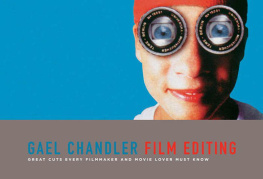
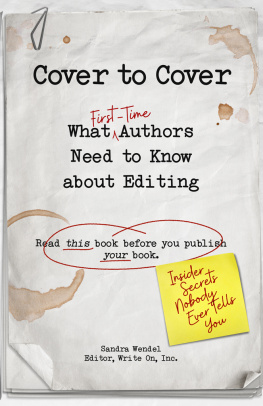
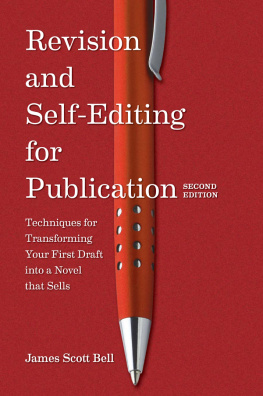
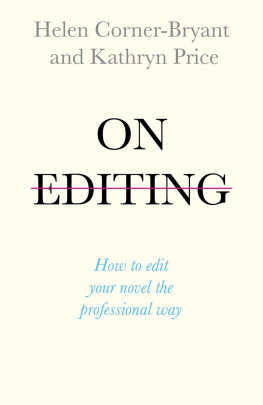
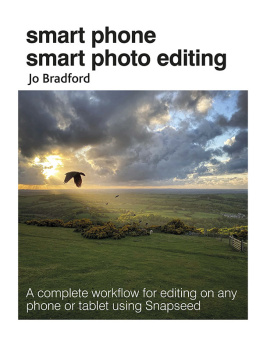
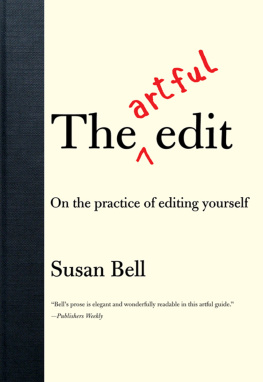

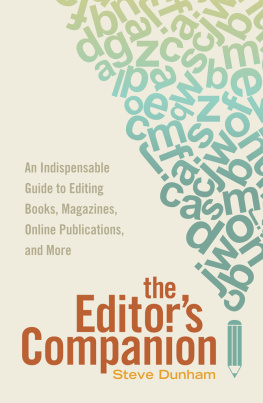
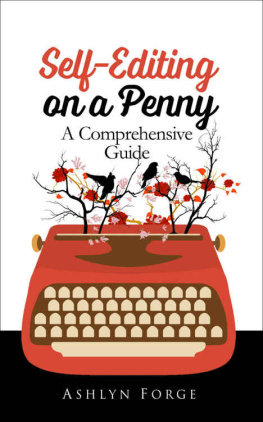
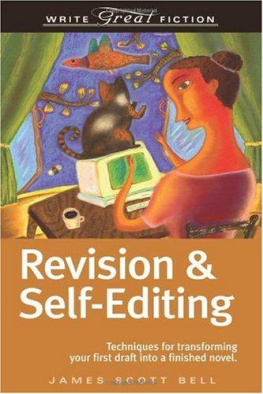




 any writers hanker to learn about a process that lives at a hushed remove from the "glamour" of writing: the edit. They want what most creative-writing classrooms are hardpressed to give, which is detachment from their text in order to see it clearly. Students are generally taught to rely on others to see it on their behalf, and risk creating a dubious dependency. Classroom critiques, while helpful, are limited. Too often they don't give a systematic view of a writer's work, and train him to develop a thick skin more than a sensible one.
any writers hanker to learn about a process that lives at a hushed remove from the "glamour" of writing: the edit. They want what most creative-writing classrooms are hardpressed to give, which is detachment from their text in order to see it clearly. Students are generally taught to rely on others to see it on their behalf, and risk creating a dubious dependency. Classroom critiques, while helpful, are limited. Too often they don't give a systematic view of a writer's work, and train him to develop a thick skin more than a sensible one.
